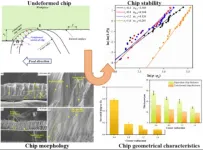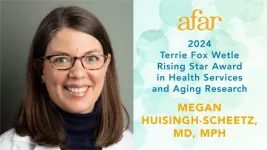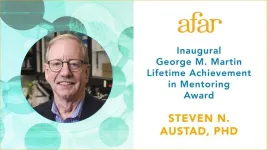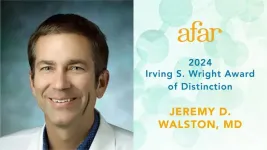“We’ve got a screening test that works. It works as well, if not better, than breast and colorectal cancer screening in terms of mortality reduction. It's one of the most life-saving things we have for a cancer that kills more people than either of those two combined,” said lung cancer pulmonologist Gerard Silvestri, M.D. And yet, he said, “Eighty percent of those eligible for this screening, regardless of race, education, ethnicity, health or income, hadn’t heard of or discussed lung cancer screening with a clinician.”
Silvestri is the senior author on a new publication from a group of MUSC Hollings Cancer Center researchers examining awareness of the existence of lung cancer screening. The paper was published this week in JAMA Network Open.
Lung cancer screening consists of a low-dose CT scan of the lungs. It’s a noninvasive, painless test and doesn’t require anesthesia. The scan can pick up on early-stage lung cancers, which can often be completely removed with surgery. Importantly, eligible patients should get a scan every year so that doctors can look for changes.
Across the nation, less than a fifth of those eligible for the test are getting it.
“Overall, the uptake of lung cancer screening writ large is somewhere between 16% and 20% – and that's an optimistic estimate,” Silvestri said.
Cancer disparities researcher and first author Kalyani Sonawane, Ph.D., said the group wanted to get a better sense of how many people have heard of lung cancer screening.
“Lung cancer screening has been recommended for a while now, but the uptake has been extremely low,” she said. “When we think of screening, the most foundational thing that one expects is that there is some sort of communication that the screening exists. So we need to have knowledge and awareness in the population and, similar to other preventive interventions, it's also partly the responsibility of health care providers to communicate.”
The group used data from an ongoing survey conducted by the National Cancer Institute that asks about people’s knowledge and perceptions of cancer and other health issues.
Among those who used to smoke cigarettes, 18% had never heard of lung cancer screening and 75% had never talked about it with a clinician. Among those who currently smoke cigarettes, 14% had never heard of lung cancer screening and 71% had never talked about it with a clinician.
Sonawane pointed out that, due to the way the survey question was worded, people had to choose one answer. It’s possible that some people who had never talked about it with a clinician also hadn’t heard of the test – and, in fact, an earlier American Lung Association survey that asked similar questions found that 73% had never discussed their lung cancer risk with a doctor and 62% weren’t familiar with lung cancer screening.
“I wish I could say that I was surprised by these findings, but I do not think that lung cancer screening has the same level of popularity as colon cancer screening,” said Benjamin Toll, Ph.D., co-director of the lung cancer screening program at MUSC, director of the MUSC Health Tobacco Treatment Program and a co-author on the paper.
“I think it'd be great if we could encourage our physicians, especially our primary care doctors, to push this as a screening method, especially for current smokers,” he said.
Increasing the number of conversations about lung cancer screening during primary care office visits is an area of opportunity – but the researchers also acknowledged the burden already placed on primary care doctors.
“Our primary care doctors have so many screening tests and so much to do that it's hard to prioritize what to do when. There's a long list, and they have probably 20 minutes. It's really a challenge to get it all done,” Toll said.
In addition, the group of people who are eligible for this screening test also happens to be a particularly hard-to-reach group, Silvestri said.
"Smoking in and of itself is a marker for disparity,” he said. Research shows that people who smoke tend to have lower incomes, live in rural areas, have less education and be less likely to have a primary care provider – all of which makes this group harder to reach.
There can also be some fear with the test that doesn’t necessarily exist with tests for other types of cancer.
“I found in my own patients who I’ve helped to quit smoking that there's a stigma because they worry that they may have ‘given themselves lung cancer,’” Toll said. “I don't totally agree that the patients ‘gave themselves lung cancer’ in that the tobacco companies have treated their cigarettes for decades to make them more addictive; so, in my opinion, they've taken some of the choice from the end user.”
Silvestri said that a lot of groups are working to incorporate lung cancer screening reminders into electronic health records but making this operational is more challenging than adding reminders for other types of screening.
Colon cancer screening reminders, for example, need only the patient’s birthdate because those screenings are recommended for everyone beginning at age 45.
Lung cancer screening, however, depends on a combination of age and “pack years,” which are calculated based on how many packs a day a person smoked, and this detailed information often isn’t in the electronic health record. Silvestri said that the MUSC screening program is working with its electronic health record vendor to improve the specificity of the information in the record.
Even without that information, though, MUSC has been steadily expanding its lung cancer screening program.
“We're screening more people around the state, and we're excited about that,” Silvestri said. “We're finding a 3.3% diagnosis rate. More importantly, most of those are early-stage so they have a strong chance for a cure.”
###
About MUSC Hollings Cancer Center
MUSC Hollings Cancer Center is South Carolina’s only National Cancer Institute-designated cancer center with the largest academic-based cancer research program in the state. With more than 150 faculty cancer scientists and 20 academic departments, it has an annual research funding portfolio of more than $50 million and sponsors more than 200 clinical trials across the state. Hollings offers state-of-the-art cancer screenings, diagnostic capabilities, therapies and surgical techniques within its multidisciplinary clinics to provide the full range of cancer care. Dedicated to preventing and reducing the cancer burden statewide, the Hollings Office of Community Outreach and Engagement works with community organizations to bring cancer education and prevention information to affected populations. For more information, visit hollingscancercenter.musc.edu
END






